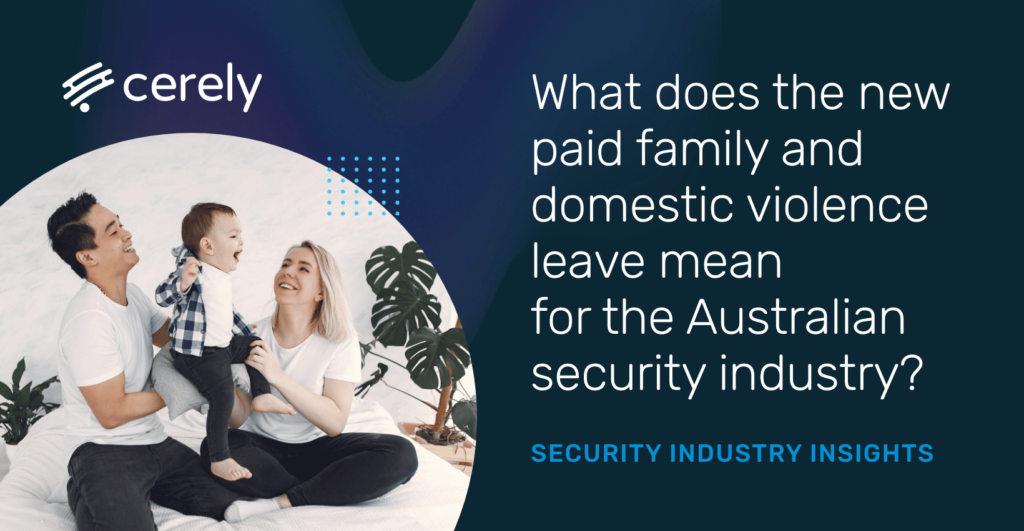Family matters always end up catching on with work. Violence in the family or at home, most especially, needs to be addressed as soon as they come up, prompting a much-needed time off.
This is true when it comes to Australia’s security sector. The local policymakers understand that violence in the family or at home has to be taken care of as soon as possible and that such an issue may happen at any given time. This may not be addressed during regular work hours, so this is where the new paid family and domestic violence leave comes in.
Now, what does this new leave entail, and what does it mean for Australia’s security industry? Let’s find out in this article, so read on.
What’s in the new paid family and domestic violence leave
To be implemented in 2023, the new paid family and domestic violence leave allows security industry workers access to a 10-day leave for reasons related to their family within a 12-month period. Specifically, it will be available starting on 1 February 2023, for businesses with more than 15 employees and on 1 August 2023, for businesses with less than the aforementioned number of workers.
This leave is available for casual, full-time, and part-time employees. It is also available upfront, meaning that it is not supposed to accumulate in the next year if left unused. The leave balance will renew on the same date when the worker has started their employment in their current company — their work anniversary, basically.
Employees who have taken paid family and domestic violence leave will get paid according to their current full pay rate, which is equal to their base rate, plus any incentives, loadings, allowances, and other identifiable amounts. In the case of casual employees, though, they will be paid for the full pay rate of the hours they were rostered within their leave period.
When can one take paid family and domestic violence leave?
Security industry workers can take advantage of this leave when they need time off to take care of the impact of family and domestic violence, especially if doing so is not practical during their work hours.
Many different matters can warrant paid family and domestic violence leave. For example, this can involve attending court hearings, arranging for the protection of a relative, or working with the police. You may also file for this leave if you need to attend counseling or go on an appointment with a relevant professional, such as a doctor or a lawyer.
What does this mean for the security industry?
Employees can greatly benefit from paid family and domestic violence leave; after all, family matters can quickly become an emergency and have to be dealt with fast. Managers, on the other hand, will find this another hefty addition to their workload.
Managing paid family and domestic violence leave can be tricky, given all the factors that you have to consider. Cerely, though, is ahead of the curve. You can use the software’s leave management and rostering features to not only manage unexpected leaves but also do quick shift assignments to fill in the available shifts. Notify all employees about an available shift or pick the ones you want for the slot and receive updates as soon as someone has accepted the assignment. Learn more here.




